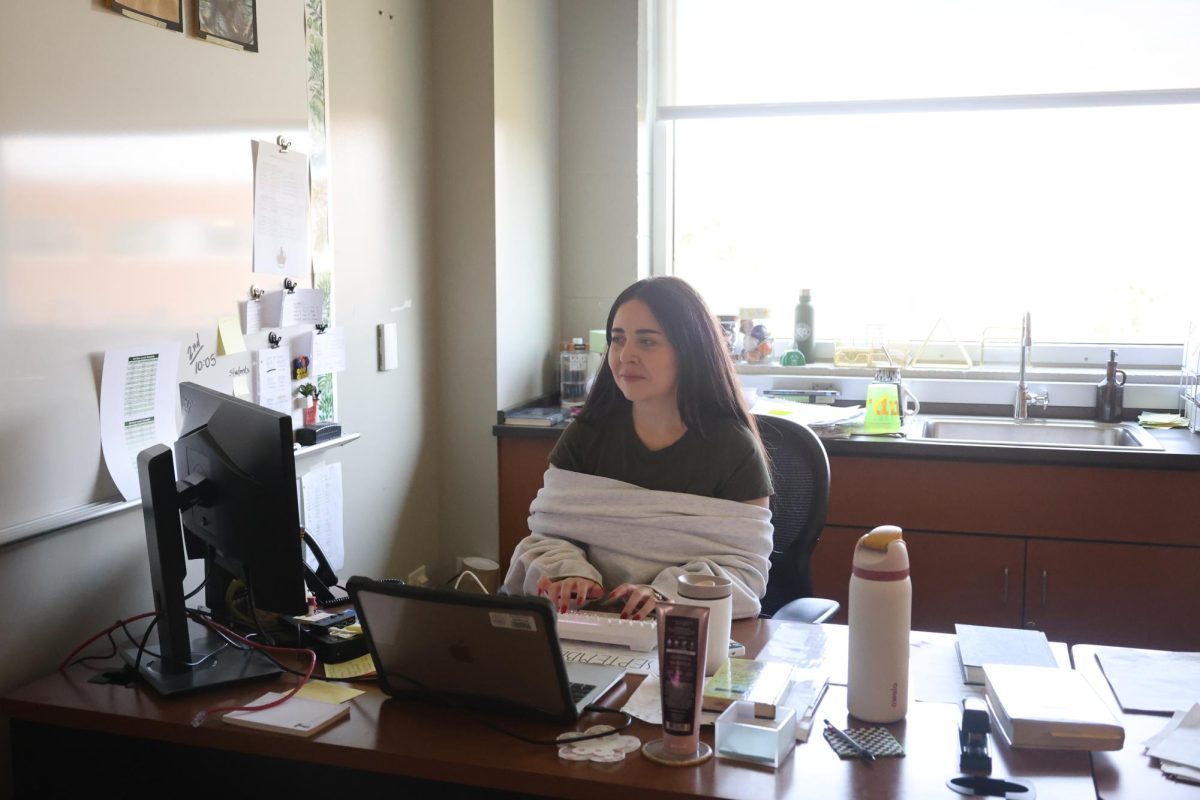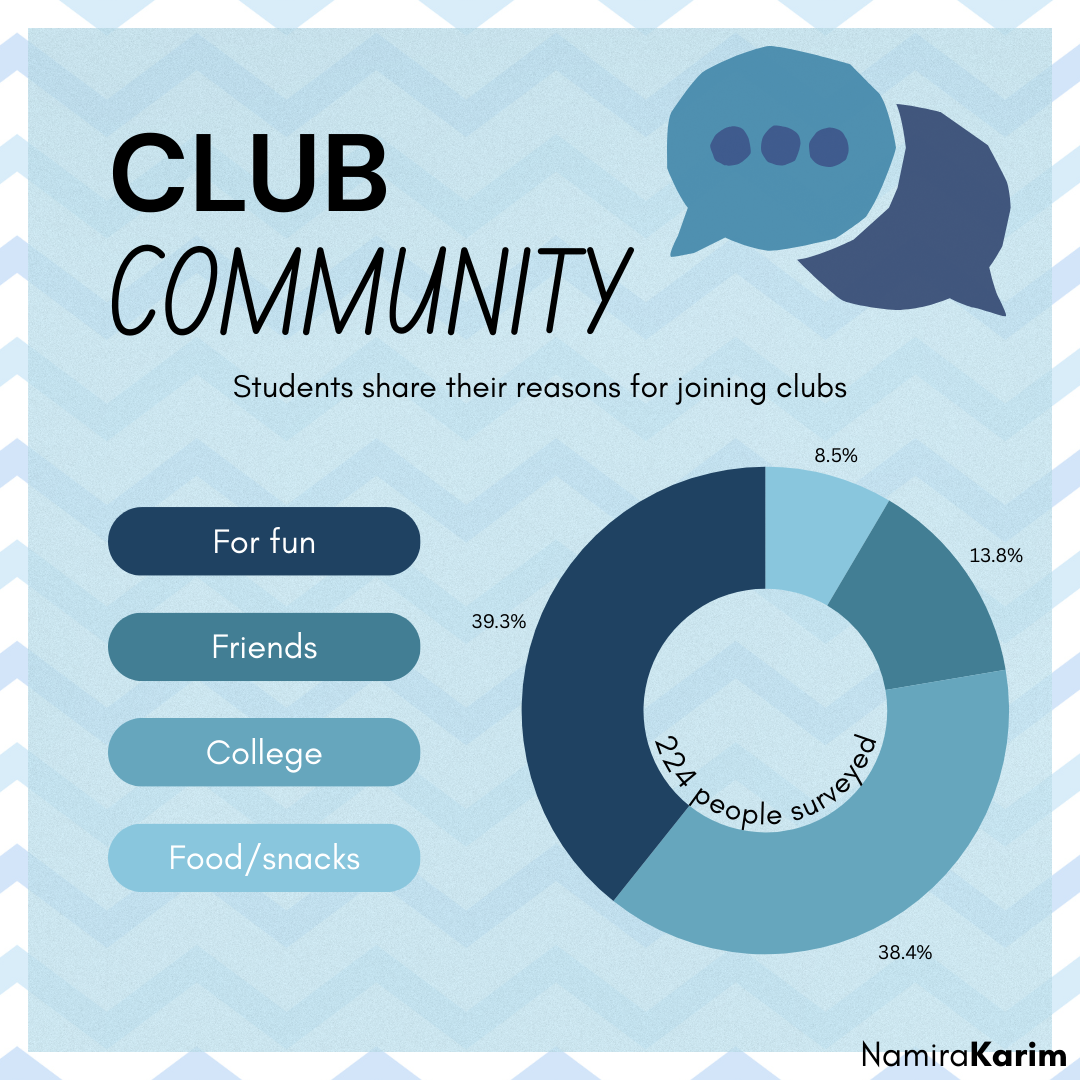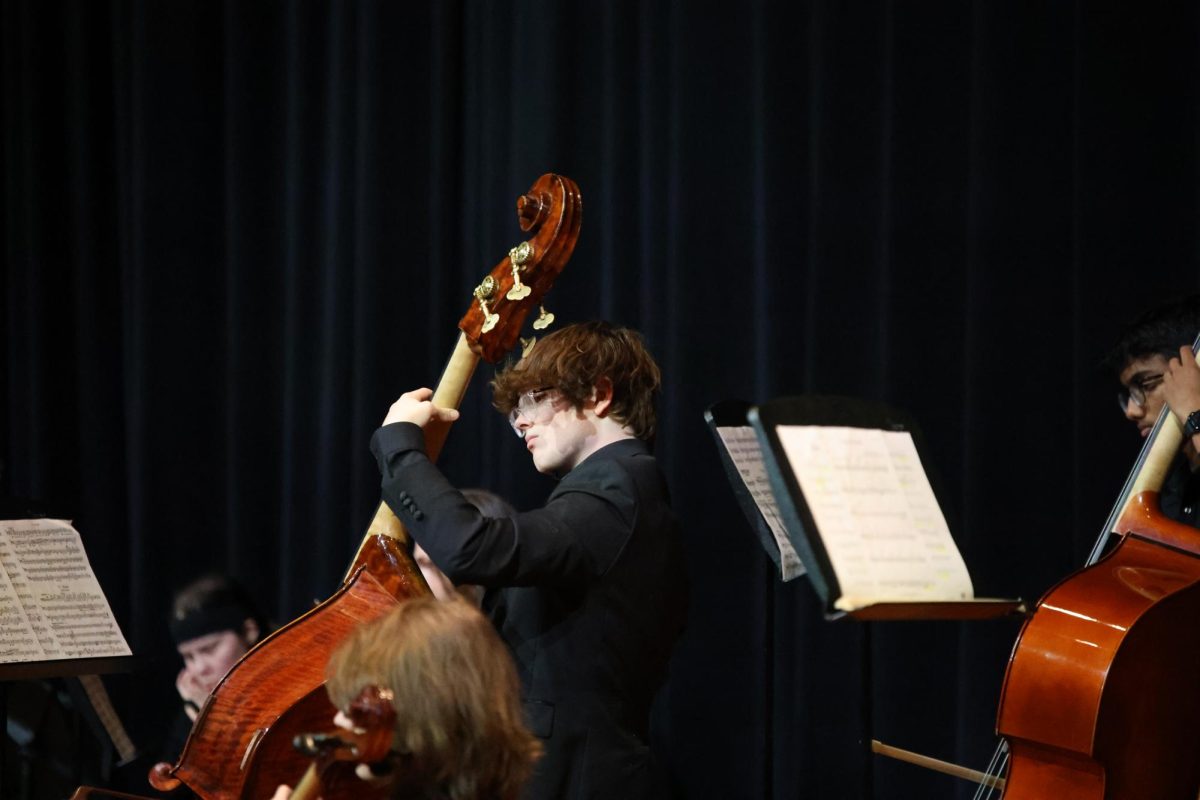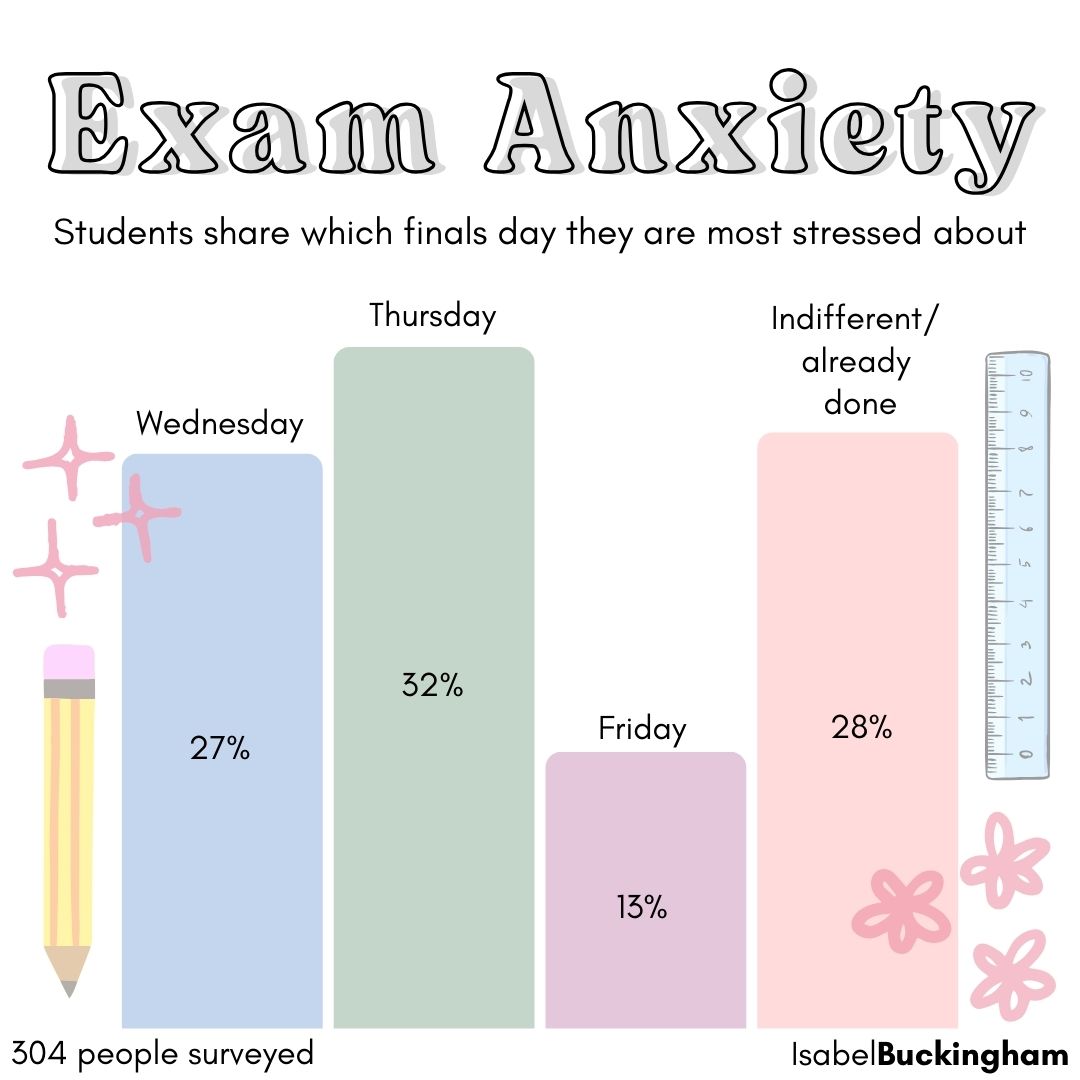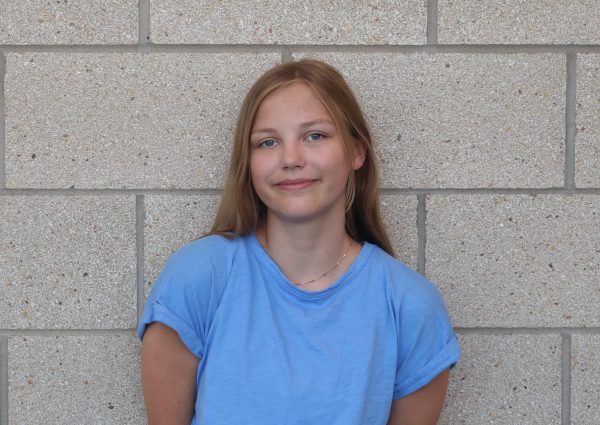In elementary school, everyone is tied into a school play. Going into middle and high school, those interests can grow. Senior Sophie Ermgodts will be taking it a step further, majoring in stage management when she goes to college.
Ermgodts said she was inspired to take up technical theatre by her siblings, who were both in theatre, on both the tech and acting side.
“I started doing tech theater back in middle school on the dingy sound board that barely worked, and it was a lot of fun,” Ermgodts said. “I would do lights for the middle school productions, and then once I got into high school, I took the tech classes.”
Now, Ermgodts works on the school productions, both the mainstage and Repertory Theatre shows, along with the Courtyard Shakespeare performances held at the school over the summer.
“My main thing that I do is stage management, which encompasses a lot of all of the tech aspects into one role,” Ermgodts said. “There’s things to do like sound, lights, costumes, projections and backstage and set stuff.”
Theatre director Jordan Foote said he has known Ermgodts since middle school, when he taught her siblings, and has taught her all four years of high school. He said she is incredibly passionate, organized, kind and thoughtful, along with knowing very early on in high school she wanted to stage manage. Together, they have put on more ambitious and intricate shows.
“I think we’ll realize next year how many things she actually did, like, ‘oh wait, Sophie used to take care of that,’” Foote said. “There’s going to be a lot of those kinds of moments, but I’m really proud of her, and I’m excited for her to keep going.”
Ermgodts said her favorite plays during her time at Southwest were the Repertory Theatre production of “Let the Right One In” and the mainstage show “The Tempest,” while her favorite musical was Repertory Theatre’s “Ride the Cyclone” last year. She said there are many challenges coming with putting on both kinds of shows, but the obstacles are different.
“If it’s a musical, there’s a whole dance aspect to it. There’s a lot more tech elements with set crew and with run crew, and that can be a whole other beast,” Ermgodts said. “Whereas plays, it’s much more technical and you can have a lot more fluidity with how much you want to go with the script.”
Ermgodts said she takes a lot of pride and inspiration from her fellow cast and crew, as they are all extremely talented in their own areas. She said the Black Box is like a second home.
“The collaboration aspect [is my favorite part], because I find it so rewarding and beautiful to work as a team and have all these minds that have such different creative outlooks and put them together to make something that brings live emotion to a live audience,” Ermgodts said.
Foote said he and Ermgodts have worked together as co-directors and he enjoyed being able to work out ideas with her. He said she has become a very trusted collaborator over the years.
“She’s had the opportunity to stage manage a bunch of shows … and she’s had a lot of leadership experience,” Foote said. “I’ve worked with stage managers in high school and college and in the professional fields, and she’s a really good one. I think she already has the capability to start to work at [the professional] level.”
Ermgodts plans to continue her work with tech theatre at DePaul University with their theatre program in Chicago, where a maximum of seven students are selected each year for stage management. She said the application process was very long, but all worthwhile to continue her career and plans.
“I would love to be a touring production stage manager for a national or international touring Broadway show,” Ermgodts said. “I’d also love to be a production stage manager for a well-known theatre company, whether that be Steppenwolf Theatre in Chicago or National Theatre in London.”
Ermgodts said she has learned a lot through her experiences and her advice for aspiring stage managers is to never give up, as there is always another option and the people within theatre act as a support system.
“Over the years through tech, I think the thing that I’ve learned is that it is so incredibly OK to make a mistake,” Ermgodts said. “There is so much trial and error and problem solving that has to do with stage management, and if one thing does not work, then it’s OK to try another.”


